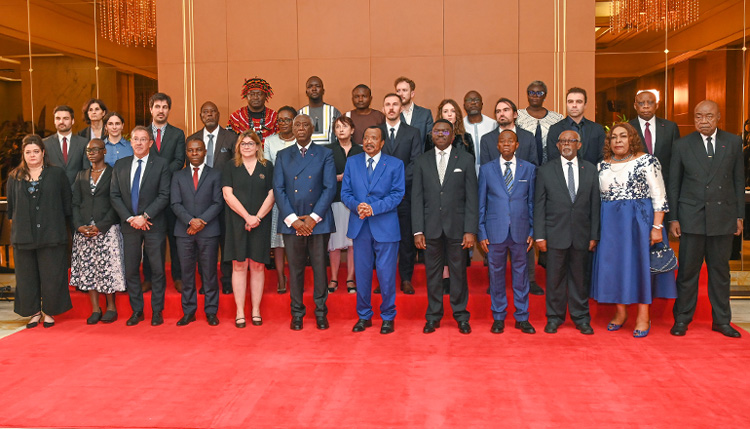January 2025
Members of the multidisciplinary Franco-Cameroonian Joint Commission on France’s role and commitment against independence and opposition movements in Cameroon from 1945 to 1971 have presented the report of the two-year research to the President of the Republic, His Excellency Paul BIYA.
French historian Karine Ramondy, co-chair of the memorial commission, solemnly handed over the scientific report to the Head of State in a ceremony organised at Unity Palace on 28 January 2025.
President Emmanuel MACRON received a copy of the findings on 21 January 2025 at the Elysee Palace.
Thani Mohamed-Soilihi, Minister Delegate for Francophonie and International Partnerships represented the French Head of State at Unity Palace.
President Paul BIYA hailed the courage and tenacity of the 14-man group of researchers for the monumental accomplishment, which will act as a collective therapy for the growth of the longstanding and friendly ties between Yaounde and Paris.
Read President Paul BIYA’s Speech
Joint Communique (pdf)


